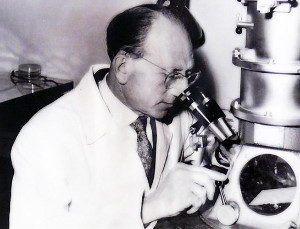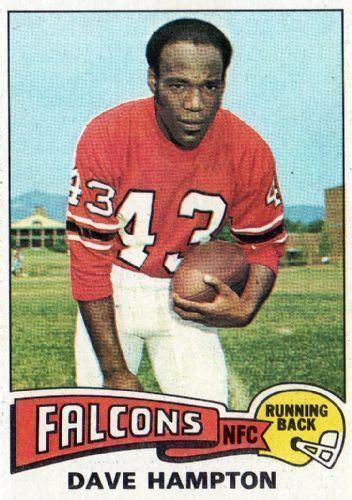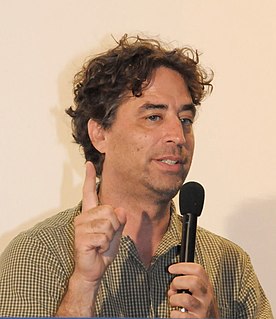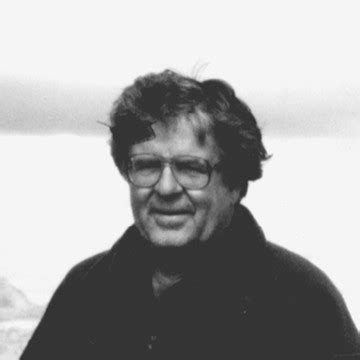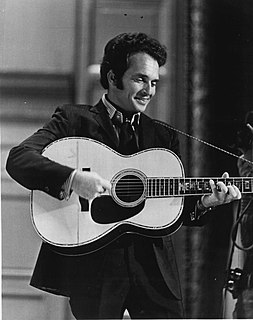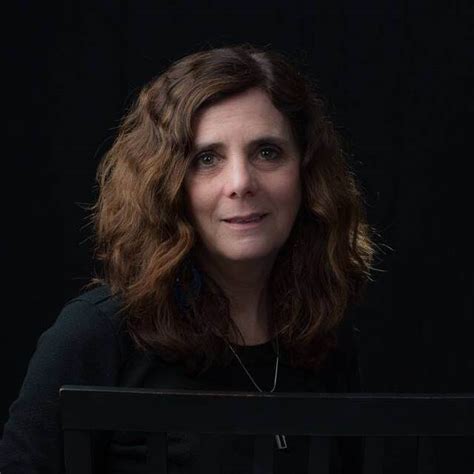Top 213 Ecology Quotes & Sayings - Page 4
Explore popular Ecology quotes.
Last updated on December 18, 2024.
Cities should function more like ecosystems, or even metabolisms. When we build, we should be thinking about how we can integrate into the ecosystems around us, but without sacrificing all the niceties of civilization like good restaurants, concert halls, and high-speed Internet access. I'm saying that partly tongue-in-cheek, but I'm also deadly serious. The future of technology is sustainable ecology.
Biochemists and biologists who adhere blindly to the Darwinism theory search for results that will be in agreement with their theories and consequently orient their research in a given direction, whether it be in the field of ecology, ethology, sociology, demography (dynamics of populations), genetics (so-called evolutionary genetics), or paleontology. This intrusion of theories has unfortunate results: it deprives observations and experiments of their objectivity, makes them biased, and, moreover, creates false problems.
On Earth Day I made a commitment to reduce our emissions of greenhouse gases to 1990 levels by the year 2000. And I asked for a blueprint on how to achieve this goal. In concert with all other nations, we simply must halt global warming. It is a threat to our health, to our ecology, and to our economy. I know that the precise magnitude and patterns of climate change cannot be fully predicted. But global warming clearly is a growing, long-term threat with profound consequences. And make no mistake about it, it will take decades to reverse.
The director of the institute where I was working apologized about these young, enthusiastic researchers when the World Bank visited because he was afraid the institute would lose the World Bank consultancies.I went back home and started the Research Foundation for Science, Technology, and Ecology?an extremely elaborate name for the tiny institute that I started in my mother?s cow shed. My parents handed over family resources and said, ?Put them to public purpose.? That?s how I survived.
There is behavioral ecology, which looks closely at the difference different ecologies make to behavior and other features of animals and humans. There's evolutionary individual psychology, there's evolutionary social psychology. In Darwin's terms, evolution couldn't exist without variation, and variation is important in behavioral genetics. And so on, and so on. There are so many instances in which evolution actually sharpens the precision, I think, with which one can find out the importance of differences. We're interested in differences as well as commonalities.
We don't even know what species are out there, for the most part, particularly when you get down to the microbes and very small invertebrates. They make up the mass of the organisms around us, including the soil we depend on, the soil of cornfields as well as hardwood forests. We haven't taken ecology to the point where we can even make a crude prediction of what's going to happen when we've reduced the living world down to a certain level.
It is science that brings us an understanding of the true complexity of natural systems. The insights from the science of ecology are teaching us how to work with the checks and balances of nature, and encouraging a new, rational, limited-input, environmentally sound means of vineyard management that offers a third way between the ideologically driven approach of Biodynamics and conventional chemical-based agricultural systems.
The three pillars of development (economic, social and environmental) must be strengthened together. But it is evident that two of the pillars - economic and social - are subsidiary to, and underpinned by, the third: a vibrant global ecology. Neither dollars nor our species will out-survive our planet. The earth can survive happily without people or profit
One dictionary that I consulted remarks that "natural history" now commonly means the study of animals and plants "in a popular and superficial way," meaning popular and superficial to be equally damning adjectives. This is related to the current tendency in the biological sciences to label every subdivision of science with a name derived from the Greek. "Ecology" is erudite and profound; while "natural history" is popular and superficial. Though, as far as I can see, both labels apply to just about the same package of goods.
When human beings lose their connection to nature, to heaven and earth, then they do not know how to nurture their environmect or how to rule their world - which is saying the same thing. Human beings destroy their ecology at the same time that they destroy one another. From that perspective, healing our society goes hand in hand with healing our personal, elemental connection with the phenomenal world.
A sense of being part of the great all-inclusive life prompts us to reflect on our own place and on how we ought to live. Guarding others' lives, the ecology and the earth is the same as protecting one's own life. By like token, wounding them is the same thing as wounding oneself. Consequently, it is the duty of each of us to participate as members of the life community in the evolution of the universe. We can do this by guarding earth's ecological system.
I hope a start at getting some oil out of the enormous Alaska field isn't indefinitely mired in a bureaucratic morass as a result of our national concern for the ecology. This concern must not be so misguided, misdirected, misused that it serves to stop economic growth, to bankrupt companies, to stifle new development, new jobs, new horizons. In fighting new pollution and stemming present pollution, exciting, sometimes costly means and methods exist and others will evolve. But blanket legislative naysaying to expanding power and energy sources is stupid, self-defeating.
My travels through physics really are the same urges that make me travel through ecology. They are not really different, except that there is an added dimension of seeing ecological destruction and seeing the very life-support system that makes us survive on this planet being destroyed. That makes me do more than just inquire; it compels me to act and to intervene.
I think that we're at an alarming moment in American political development and maybe in world political development, because the United States is so influential. If the trends of the last thirty or forty years are not halted and reversed - and those trends include increasingly inequality, a crumbling public life, a disintegrating public infrastructure, an exhausted ecology, and a huge war arsenal, and more and more war making - then I'm rather gloomy about the prospects for the American future and the harm that the United States could do to the world.
Ecology movements, futurism, feminism, urbanism, protest and disarmament, personal individuation cannot alone save the world from the catastrophe inherent in our very idea of the world. They require a cosmological vision that saves the phenomenon 'world' itself, a move in soul that goes beyond measures of expediency to the archetypal source of our world's continuing peril: the fateful neglect, the repression, of the anima mundi.
Through luminous and erudite readings of the texts, Hasana Sharp shows us how profound and radical is Spinoza's conception of nature and his claim that humans always remain part of nature, acting solely according to the same rules. She demonstrates the political consequences of adopting this perspective through a provocative intervention in contemporary feminist theory, while along the way opening promising avenues for future work in a variety of other fields, such as animal studies and ecology. This is a challenging and important book.
Permaculture offers a radical approach to food production and urban renewal, water, energy and pollution. It integrates ecology, landscape, organic gardening, architecture and agro-forestry in creating a rich and sustainable way of living. It uses appropriate technology giving high yields for low energy inputs, achieving a resource of great diversity and stability. The design principles are equally applicable to both urban and rural dwellers
In the Germany of the l920s, the Weimar Republic, both organismic biology and Gestalt psychology were part of a larger intellectual trend that saw itself as a protest movement against the increasing fragmentation and alienation of human nature. The entire Weimar culture was characterized by an antimechanistic outlook, a "hunger for wholeness". Organismic biology, Gestalt psychology, ecology, and, later on, general systems theory all grew out of this holistic zeitgeist.
The ecology of the valley was complex beyond our understanding, and it began to die as we went on manipulating it in ever more frantic ways. As it went dead and empty of the old life it became a place where no one wanted to live. In our right minds we want to seek out places that reek of complexity. Our drive to industrialize soured and undercut the intimacies that drew most people to country life in the first place.
If gold has been prized because it is the most inert element, changeless and incorruptible, water is prized for the opposite reason -- its fluidity, mobility, changeability that make it a necessity and a metaphor for life itself. To value gold over water is to value economy over ecology, that which can be locked up over that which connects all things.
Today, people are talking about many things: the danger of war and frequent clashes, water and air pollution, hunger, the increasing erosion of moral values, and so on. As a result, many other concerns have come to the fore: peace, contentment, ecology, justice, tolerance, and dialogue. Unfortunately, despite certain promising precautions, those who should be tackling these problems tend to do so by seeking further ways to conquer and control nature and produce more lethal weapons.
I think our intelligence is a source of toxicity to nature and discomfort to ourselves unless our values are based on planetary values, are linked to the values of the rest of nature. Intelligence is not a license to trample. The proper role of intelligence in a planetary ecology is that of gardener, caregiver and maintainer of balance.
Ecology more important than saving animals from slavery??? Humans suffer the raping of the earth but animals suffer DOUBLY: the raping of the earth PLUS their own raping by humans. They are innocent/they are not the ones who raped the earth/they enrich it for us all from the tiniest microscopic beings to the largest ones.
Wilderness is a place where the wild potential is fully expressed, a diversity of living and nonliving beings flourishing according to their own sorts of order. In ecology we speak of "wild systems." When an ecosystem is fully functioning, all the members are present at the assembly. To speak of wilderness is to speak of wholeness. Human beings came out of that wholeness, and to consider the possibility of reactivating membership in the Assembly of All Beings is in no way regressive.
Once you've said to yourself, "But I'm not using my physics in my house," or "I'm not using my ecology in my garden, I've never applied it to what I do," it's like something physical moves inside your brain. Suddenly you say, "If I did apply what I know to how I live, that would be miraculous!" Then the whole thing unrolls like one great carpet. Undo one knot, and the whole thing just rolls downhill.
Only within the 20th Century has biological thought been focused on ecology, or the relation of the living creature to its environment. Awareness of ecological relationships is - or should be - the basis of modern conservation programs, for it is useless to attempt to preserve a living species unless the kind of land or water it requires is also preserved. So delicately interwoven are the relationships that when we disturb one thread of the community fabric we alter it all - perhaps almost imperceptibly, perhaps so drastically that destruction follows.
Industrial Society is not merely one containing 'industry,' large-scale productive units capable of supplying man's material needs in a way which can eliminate poverty: it is also a society in which knowledge plays a part wholly different from that which it played in earlier social forms, and which indeed possesses a quite different type of knowledge. Modern science is inconceivable outside an industrial society: but modern industrial society is equally inconceivable without modern science. Roughly, science is the mode of cognition of industrial society, and industry is the ecology of science.
It is so hard for an evolutionary biologist to write about extinction caused by human stupidity. Let me then float an unconventional plea, the inverse of the usual argument. The extinction of Partula is unfair to Partula. That is the conventional argument, and I do not challenge its primacy. But we need a humanistic ecology as well, both for the practical reason that people will always touch people more than snails do or can, and for the moral reason that humans are legitimately the measure of all ethical questions for these are our issues, not nature's.
One of the anomalies of modern ecology is the creation of two groups, each of which seems barely aware of the existence of the other. The one studies the human community, almost as if it were a separate entity, and calls its findings sociology, economics and history. The other studies the plant and animal community and comfortably relegates the hodge-podge of politics to the liberal arts. The inevitable fusion of these two lines of thought will, perhaps, constitute the outstanding advance of this century.
Now consciousness, what is consciousness? Consciousness is being aware of one's surroundings, recognizing the existence, truth or fact of something; being aware of the very moment, the very instant that you are in; being aware of how you affect the human social, political, and natural ecology you are a part of and how it affects you. Consciousness is being informed and instructed through your groups peculiar culture on the effects of the varied ecologies on your immediate and distant ancestors, and to be aware of their interpretation of that experience.
The thing that bothers me the most is the recklessness and greed of the local ranchers, who run too many cattle back here, choking with waste the creek that runs through my property. There's certain times of day that the cowboys like to send them turds down the river. Them f**kers piss me off. if you gotta mess up the ecology of the world in order to raise a bunch of cows, well eat somethin else. I'm not a fan of the cowboys.
A garden is the place millions of people go to touch the earth, to smell flowers - to use some of that fabled human brain power in the cause of better participating with natural processes in the place they call home. It serves as an art project, an organic produce market, a spiritual practice, a pharmacy. It offers ongoing lessons in ecology, biology, chemistry, geology, meteorology. Gardening imparts an organic perspective on the passage of time. It bestows on its practitioners a genuine sense of admiration for the plants, the soil, the sun, the water.
Throughout our lives friends enclose us like pairs of parentheses. They shift our boundaries; crater our terrain. They fume through the cracks of our tentative houses and parts of them always remain. Friendship asks the truth and wants the truth, hollows and fills, ages with us, and we through it. It cradles us like family. It is ecology and mystery and language - all three. Our grown-up friendships - especially the really meaningful ones- model for our children what we want them to have throughout their lives.

